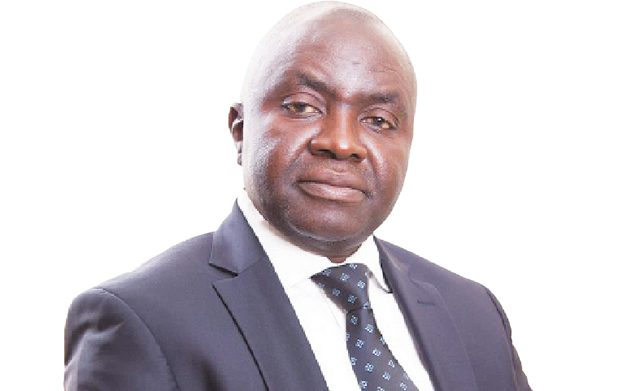The Centre for the Promotion of Private Enterprise has endorsed the recent decision by the Central Bank of Nigeria to increase the minimum amount of money that banks must have.
The head of the centre, Dr Muda Yusuf, revealed this in a statement on Monday.
The CPPE CEO mentioned that the goal of having enough money is to make sure the financial system works well and stays strong.
“The reason for increasing the minimum amount of money is to protect depositors’ money, make the financial system more stable, make the banking system more resilient, and prepare the bank to help with growth,” he said.
The CBN, on Thursday, introduced new minimum money requirements for banks, setting the smallest amount of money that commercial banks with international permission must have at N500bn.
It shared this information in a notice signed by its acting Director of Corporate Communications, Sidi Ali.
Ali mentioned that the new smallest amount of money that commercial banks with national permission must have is now N200bn, and the new requirement for banks with regional permission is N50bn.”
She also shared that the new minimum amount of money for merchant banks will be N50bn, while the new requirements for non-interest banks with national and regional permissions are N20bn and N10bn, respectively.
Capital adequacy measures a bank's ability to meet its financial duties and handle any unexpected losses.
It measures the financial strength of a bank, safeguards depositors’ money, increases financial activities, and improves the ability to help economic growth by funding investments.
Yusuf mentioned that the last major check of minimum money requirements was done in 2005.
That was during President Olusegun Obasanjo's time, when Prof Charles Soludo was CBN governor.
But since then, the value of the minimum amount of money has been greatly reduced by inflation.
For instance, the official exchange rate in 2005 was about N130 to the dollar. This meant that the N25bn for a national bank, for instance, was equal to $192m. The naira equivalent today is about N250bn.
For the international banking licence, it would be about $384m, an equivalent of about N500bn.
He said, “The fact is that the requirement for having enough money has not increased significantly in real terms, when adjusted for inflation.
“The real problem is that inflation has weakened the value of money over time, which makes increasing the minimum amount of money necessary and unavoidable.”
Reports from the CBN show that Nigerian banks have good financial strength indicators. The industry Capital Adequacy Ratio in January was 13.7 per cent, which was higher than the required minimum of 10 per cent.
The Non-Performing Loans as a percentage of total loan assets was 4.81 per cent, as opposed to the required minimum of 5 per cent, which is also a positive sign. Liquidity ratio of 40.14 as opposed to the required minimum of 30 per cent, which also shows a good financial position.
Yusuf said, “Based on the financial strength indicators, Nigerian banks are considered generally healthy. However, this does not reduce the need for regulatory authorities to make sure that this strength and stability are maintained and improved, especially due to recent economic challenges.
The current policy of the CBN to review the capital base may be influenced by this.
Yusuf praised the CBN for planning the recapitalization of banks in a way that reduces shocks and disruptions to the banking system and the economy.
We support the CBN for setting a 24-month timeline for banks to comply. This will reduce disruptions in the financial system and ensure a smooth transition to the new capitalization regime for banks.
The current approach and timeline given by the CBN should minimize the risk of bank collapse or hasty mergers and acquisitions. It is also good that the current categorization of banks with differential capital requirements has been maintained – international, national, and regional. This is necessary to allow for inclusion and reduce the risk of dominance of the banking space by a few big banks.
However, he emphasized that the CBN needs to assure depositors about the safety of their funds in the banking system, regardless of the current level of bank capitalization.
Maintaining the confidence of the banking public about the soundness and stability of the Nigerian banking system is important, especially due to the perception and vulnerable risks of smaller banks.
We urge the CBN to minimize risk to shareholders and employees in the banking system as a whole. It is also important to guard against elevated concentration risks and the deepening of an oligopolistic structure in the banking system.
The CPPE executive expressed concerns about the large interest rate spreads in the Nigerian banking system.
The difference between deposits and lending rates can be as high as 20 per cent, which is one of the highest globally.
Funds in the banking system have an extremely short tenure, with over 80 per cent having a tenure of one year or less, explaining the high level of assets and liability tenure mismatch in the banking system.



